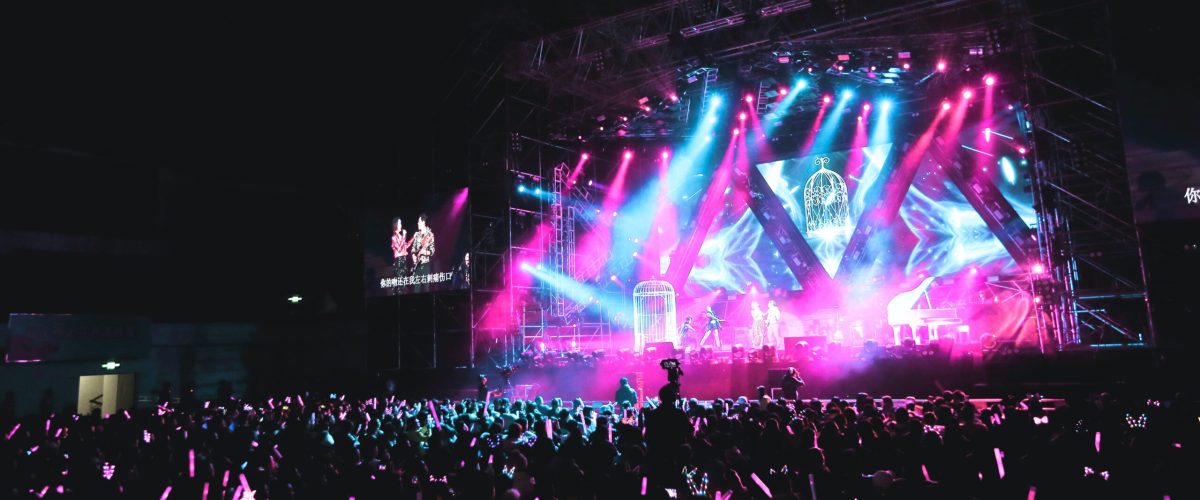If you are involved in producing music festivals, you know that choosing the right venue is crucial for the success of a music festival. The venue sets the stage for an unforgettable experience for attendees, artists, and organizers alike. With so many factors to consider, it can be overwhelming to make the right choice. In this blog post, we will provide a comprehensive guide on how to ensure you choose the perfect venue for your music festival. Producing music festivals requires understanding your festival’s needs to evaluating technical requirements, budget considerations, safety measures, and more. This guide will help you make an informed decision that aligns with your festival’s vision. Remember, the venue serves as the canvas on which your festival will come to life. It sets the ambiance, creates the atmosphere, and provides the infrastructure necessary to support the performances and activities. If you don’t put the needed effort into choosing the right venue, your festival can fall apart.
 Producing Music Festivals: Identifying Needs
Producing Music Festivals: Identifying Needs
Before embarking on the venue selection process, it’s essential to have a clear understanding of your festival’s needs when starting your efforts with producing music festivals. Identify your target audience, determine the musical genre, and define the festival’s size and expected attendance. Consider the unique requirements of your festival, such as special features or themes you’d like to incorporate.
Start by identifying your audience. Determine the demographics and preferences of the attendees you aim to attract. This will help you select a venue that caters to their needs and desires, creating an immersive experience that resonates with your target demographic.
Next, consider the musical genre or genres that your festival will focus on. Whether it’s rock, electronic, hip-hop, or a combination of genres, the venue should be suitable for the specific type of music you plan to showcase. Certain venues may have better acoustics or an atmosphere that complements particular genres, so keep this in mind during your selection process when producing music festivals.
Defining the size of your festival and estimating the expected attendance is crucial for both logistical and experiential reasons. A venue that is too small may lead to overcrowding and discomfort for attendees, while one that is too large may create a sense of emptiness and dilute the atmosphere. Understanding your festival’s size will help you narrow down venues that can comfortably accommodate your expected number of attendees. One way you can estimate this number is by posting interest polls on social media when organizing a music festival.
Furthermore, when producing music festivals, consider the unique requirements or special features you’d like to incorporate into your upcoming festival. This could include anything from interactive art installations and themed areas to specific amenities like water stations or designated chill-out zones. Identifying these elements will help you find a venue that can accommodate and enhance these features, adding an extra layer of excitement to your festival. By having a clear understanding of your festival’s needs, you can approach the venue selection process with a focused mindset. This will allow you to narrow down your options and prioritize venues that align with your festival’s identity, musical genre, size, and requirements.
Narrowing it Down
Selecting the right location for your music festival venue is essential to its overall success. The location sets the tone for the event and greatly influences attendance, convenience, and the overall experience of festivalgoers. When considering potential venues for music festivals, there are several key factors related to location that you should carefully evaluate. Accessibility and proximity to transportation hubs are essential considerations. Choose a venue that is easily reachable by public transportation, such as buses, trains, or subways, to ensure convenient access for attendees. If feasible, select a location that has ample parking facilities for those who prefer to drive. Offering multiple transportation options will make it easier for a larger audience to attend your festival.

Additionally, it’s vital to be mindful of the area where the venue is located. Some venues may have specific regulations regarding noise levels, especially if they are in close proximity to residential areas or other businesses. Understanding and complying with these regulations is crucial to avoid potential issues during a music festival. It’s important to communicate with local authorities and the venue management to ensure that your festival’s activities align with any noise restrictions in place. Consider the impact of the festival on neighboring communities. Engage in open and transparent communication with local residents and businesses to address any concerns they may have. Being a good neighbor by minimizing noise pollution, ensuring proper waste management, and taking steps to mitigate any potential disruptions can help maintain positive relationships with the local community. Involving local businesses as vendors or sponsors can also contribute to a sense of community involvement and support.
Technological Requirements Involved in Organizing a Music Festival
To create a truly memorable music festival, it is essential to carefully evaluate the technical and production capabilities of potential venues. The quality of infrastructure, including power, lighting, and sound systems, will significantly impact the overall experience for both artists and attendees. Here are some key aspects to consider when assessing the technical and production capabilities of potential venues:
- Existing Infrastructure: Thoroughly evaluate the existing infrastructure of each potential venue. Assess the electrical capacity to ensure it can support the power requirements of your festival, including stages, lighting rigs, sound equipment, and other technical elements. Adequate power supply is crucial to avoid disruptions or equipment failures during performances.
- Lighting Systems: Consider the venue’s lighting systems and their versatility in creating dynamic and captivating stage setups. Assess the lighting capabilities, such as the availability of stage lighting rigs, spotlights, and special effects lighting, to ensure they can meet the artistic vision of your festival. A well-designed lighting setup can enhance performances and create an immersive atmosphere.
- Sound Systems: Evaluate the venue’s sound systems and acoustics to ensure optimal sound quality across different areas of the venue. Assess the quality of the existing sound equipment, including speakers, amplifiers, mixing consoles, and monitors. Consider the venue’s acoustics and how they may vary depending on the stage location, audience area, and surrounding structures. Suitable acoustics are crucial for delivering an enjoyable experience for all attendees.
- Other Production Elements: Assess the venue’s ability to incorporate desired production elements that align with your festival’s vision. This may include large screens for visual displays, special effects such as pyrotechnics or confetti cannons, and the flexibility to accommodate elaborate stage setups. Consider any unique or innovative production elements you wish to incorporate and ensure that the venue can support their execution.
By thoroughly evaluating the technical and production capabilities of potential venues, you can select a location that aligns with your festival’s artistic vision and meets the technical requirements of the performances.
Summation
Consolidate all the research and evaluation findings to make the final decision when producing music festivals. Consider the pros and cons of each potential venue, considering factors such as location, capacity, technical requirements, budget, safety measures, vendor opportunities, and reputation. Carefully assess how each venue aligns with your festival’s unique vision and goals. Consider the location and accessibility of each venue, evaluating its proximity to transportation hubs and the availability of local amenities. Reflect on the capacity of the venue and its ability to comfortably accommodate your expected attendance. Ensure that the venue meets the necessary technical requirements, including infrastructure for sound, lighting, and stage production. Evaluate the financial feasibility of each venue, weighing the rental cost against your budget and considering any additional expenses such as permits, security, insurance, and equipment rental. Safety measures should be a priority, so assess whether the venue complies with local regulations and has a strong track record in terms of security and emergency preparedness. Take into account the potential vendor and sponsorship opportunities offered by each venue. Consider the available spaces for vendors, food and beverage areas, and sponsorship activations, as well as the visibility and branding opportunities provided. The reputation of the venue is also important, so seek feedback from other event organizers and attendees to gauge their experiences and satisfaction with each potential venue.
Ultimately, choose the venue that offers the best overall package and aligns most closely with your festival’s vision and goals. The selected venue should provide the necessary infrastructure and amenities to create a remarkable and immersive experience for both artists and attendees. It should reflect the identity of your festival and have the potential to become a memorable and sought-after location for future events. A carefully selected venue sets the stage for an unforgettable experience.
Related Posts:
Creative Concert Venue Options for Events
Festival Event Planning: 11 Steps to Success

 Producing Music Festivals: Identifying Needs
Producing Music Festivals: Identifying Needs



